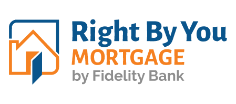It wasn’t too long ago that people celebrated paying off their mortgage by holding mortgage burning parties, in which the promissory note was lit aflame among family and friends.
These days, there’s not a lot of hoopla about paying off your mortgage. In fact, most mortgages are paid off when someone refinances or sells their home. Yet for many Americans, paying off a mortgage ahead of time remains an important goal. But is it right for you?
Reasons to Pay Off Early
All mortgages involve principal – which is the amount of your loan – and interest on that principal based on your mortgage rate. In most cases, you have the ability to make additional payments toward your loan principal so you can pay off your loan ahead of schedule.
There are several reasons why you might want to do so. From a savings standpoint, paying off your mortgage ahead of time by making extra payments can save tens or even hundreds of thousands of dollars in interest, depending on your total loan balance and the years remaining on your loan term.
For example, let’s say you have a 30-year mortgage of $300,000 with a 3.5% fixed rate. Your normal monthly principal and interest payment would be $1,347. By paying an extra $798 per month for a total payment of $2,145, you could pay off your loan in 15 years. More importantly, you’d save a total of $98,931, because you won’t be paying interest for those extra 15 years.
Having your home paid off also reduces the impact of a financial crisis, such as losing your job or a medical emergency. For many, there’s also a huge emotional lift that comes with never having to make another mortgage payment. That’s especially true if you’re nearing retirement, when your income may be greatly reduced. Not having a mortgage takes a big load off your budget.
Reasons Not To
While it’s typically rare these days, your mortgage may have a prepayment penalty if you decide to pay it off early. But perhaps the biggest reason not to pay off your mortgage early is that those extra payments can leave you with little money for life’s emergencies. That money becomes “trapped” in your property, too. The only way to get it back is to get a cash-out refinance or sell your home, but either option can take weeks.
It’s also unwise to pay off your loan if you haven’t properly saved for retirement or have an emergency fund set aside. If you’re in your 20s or 30s, instead of paying down your mortgage, a better strategy may be taking the extra money you planned to pay toward your mortgage and invest it in stocks, bonds, or a retirement account. The money you invest elsewhere will compound, too, so it may continue to grow over time.
If you have credit cards or other revolving debt with higher interest rates than your mortgage, it may be a better idea to pay those off before your mortgage.
Also, don’t forget that one of the benefits of having a mortgage is that you may get to deduct your mortgage interest payments from your taxes, which offsets the total amount of interest you’ll pay over the life of the loan. If you are looking for a way to reduce your taxes, holding onto your mortgage may be a good idea.
So, should you pay off your mortgage early or not? It really depends on your financial circumstances, your budget, and your goals. You might want to speak with your mortgage loan officer and financial advisor to see what’s best for you.
Of course, you could choose a happy medium. Even making a small additional payment can save money over the long term. Taking our example above, let’s say instead of paying an extra $798 per month to pay off your loan in 15 years, you make a much smaller payment of $155 and put the rest of your money into a retirement account. You’ll pay off your loan in 25 years instead of 30 while saving $34,407 in interest—and earn money from your investments, too.
If you’d like to learn more about paying off your mortgage early, one of our local Right By You Mortgage experts would be happy to help. Please give us a call at 1-877-552-2242 or contact us at inquiries@rightbyyoumortgage.com.









